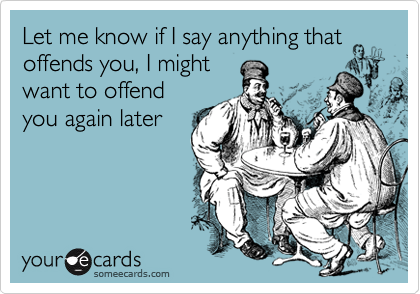When we get angry, we’re always ready to point the finger at the person who’s angered us.
When we’re hurt, it’s always about something the other person said or did that hurt us.
Do we have a control or responsibility over the way we react to situations? I'm not talking response, I'm talking react, as in feel. And the happy answer is actually, yes…….a hundred percent.
Let’s do this with an example again;
Let’s say I have a colleague who is generally critical of my work at office, and each time he says it, I tend to get upset. Depending on my frame of mind, I either get angry and retort, or I’m hurt and I sulk. Both are negative emotions. And they’ll drag me into negative space.
Why? Not because the criticism is in itself hurtful, but because it triggers a negative experience within me. It makes me feel smaller, and I feel the pain.
Now, there are two things needed for me to feel this pain. One is the trigger and second, is what the trigger evokes.
The trigger in this case is the other persons criticism. What it evokes is my own interpretation. The trigger is what the other person said, but the pain is coming from a space of hurt or insecurity from inside of me, from my own past experience. Like, the person saying my work is inferior, and it making me feel worthless. We don’t even notice the interpretation happening, because it’s a lifetimes practice in drawing conclusions the moment there is the trigger. Just think about it. If my interpretation is, 'I’ve done a brilliant job... he doesn’t know what he’s talking about', would I feel the anger or hurt? No, I'd say to hell with you, and the criticism would have no emotional impact. But we're all mostly quick to anger or hurt because we harbor so much lack and insecurity within ourselves. And that's the part we need to work on.
Now, I'm not saying this is how you always handle criticism. Let’s say the criticism was to an extent true, and that my work was lacking the quality it demanded. I can listen and take it as constructive feedback, and I’m still fine. Just minus all the anger and the hurt. In fact I'll likely actually use the feedback to get better quality output. But if I'm sitting in the emotional space of a victim, there's not much progress I'm going to make, as my rational faculties would have almost shut down. It's what's called the emotional hijack.
A slightly more complex scenario; let's say this colleague is not too pleasant with his communication and is actually scathing or rude in his criticism; so here there's an add on, the criticism is also coming packaged with a negative emotion. Even then, even then understand that the emotion or judgment that it's coming with, is his. It’s not about you, it’s about him. So you still choose your interpretation.
Nothing others ever do or say has any implications on your self-worth, self-respect, or self-esteem.........unless you decide it does.
The key is to learn to recognize the triggers which are shifting your space. It comes with a level of awareness and practice. It will give you an opportunity to develop greater control over your emotional states, and it definitely puts you in a position of power, with a natural corollary of greater peace and happiness.
 |
| Keep that power with you :) |
Sure, this is not easy, but trust me, it's also not as difficult at it sounds. It's a process, but it's a doable aspirational goal. It's about becoming aware, that's the big first step. And as you get to that space of clarity it also helps you see how many of your issues emanate from within you and how many from without, or rather which one from you and which one from the other.
It's powerful, very powerful, as it's what enables the most critical faculty of discernment in that acceptance thingy 'Accept what you cannot change, change what you cannot accept and have the discernment to know which is which'
It's powerful, very powerful, as it's what enables the most critical faculty of discernment in that acceptance thingy 'Accept what you cannot change, change what you cannot accept and have the discernment to know which is which'
No comments:
Post a Comment